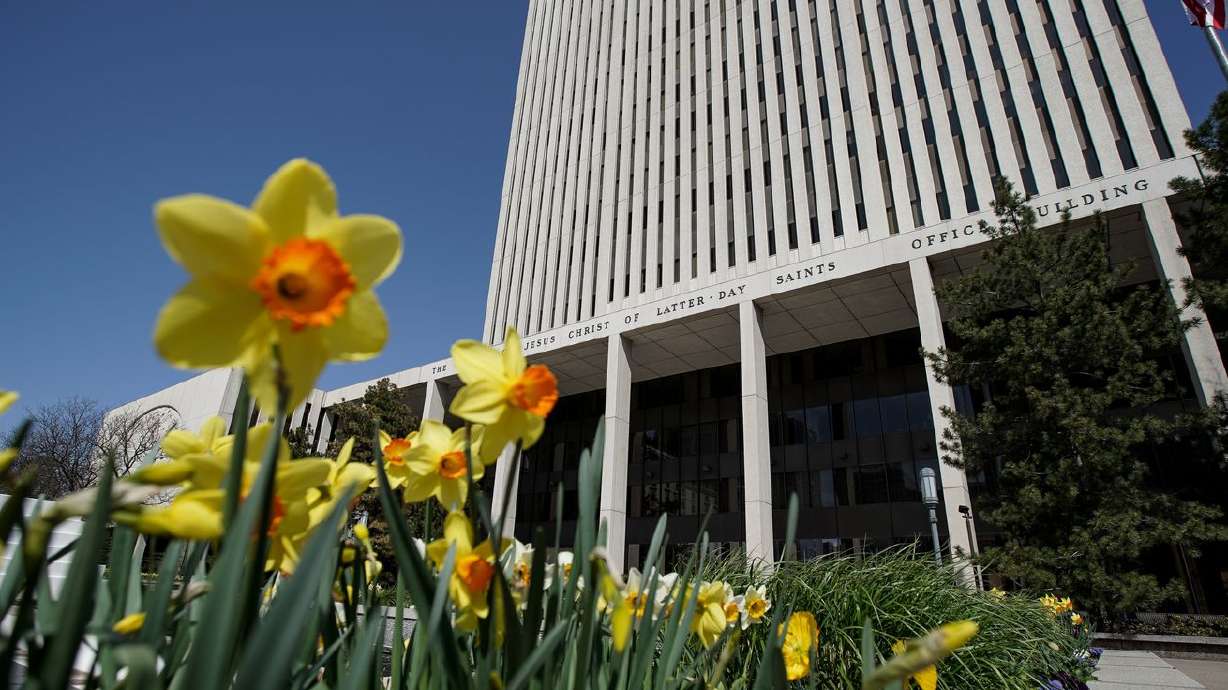Estimated read time: 5-6 minutes
This archived news story is available only for your personal, non-commercial use. Information in the story may be outdated or superseded by additional information. Reading or replaying the story in its archived form does not constitute a republication of the story.
SALT LAKE CITY — Latter-day Saints should welcome refugees to their communities and keep church settings free of politics, according to the latest updates in the two-year project to update the church's handbook of policies and instructions.
The update to the General Handbook of The Church of Jesus Christ of Latter-day Saints released online Wednesday includes a new section on refugees (38.8.35).
"As part of their responsibility to care for those in need, church members offer their time, talents, and friendship to welcome refugees as members of their communities," the section says.
It points readers to an official web page, ChurchofJesusChrist.org/refugees and two scriptures (Mosiah 4:26 and Matthew 25:35). It also links to a revised section titled "Immigration" (38.8.20) that uses the same language to encourage a welcoming attitude toward immigrants.
Updates to the entry on "Political and Civic Activity" (38.8.30) warn against political advocacy in church gatherings.
"Political choices and affiliations should not be the subject of any teachings or advocating in church settings," the handbook now says. "Leaders ensure that church meetings and activities focus on the Savior and His gospel. Members should not judge one another in political matters. Faithful Latter-day Saints can belong to a variety of political parties and vote for a variety of candidates. All should feel welcome in church settings."
The updates were made at the direction of the First Presidency and Quorum of the Twelve Apostles, who on Wednesday sent a letter announcing them to general authorities and officers of the church, mission presidents and local leaders around the world.
The church announced in January 2020 that it was combining what had been Handbook 1 and Handbook 2 into a single, streamlined, universally accessible, flexible, online General Handbook with 38 chapters.
The project is being completed over time. Wednesday's was the sixth section of updates released in the past 18 months. Summaries of the previous updates and links to stories about them are included below.
The new update on politics also includes information on how the church approaches issues of concern.
Church leaders long have said the church has the right to speak out on moral issues when they intersect with politics. When the church takes a position, it "does not ask elected officials to vote a certain way or to take a certain position," the updated entry says. "Members who are elected officials make their own decisions. These officials might not agree with one another or with a publicly stated church position. They do not speak for the church."
Also, the section on businesses (38.8.7) now instructs that "church meetinghouses and other facilities, Church meetings and classes and Church websites and social media channels may not be used to promote any business or non-church entity."
Other updates released Wednesday, according to the letter from church leaders:
- The title of chapter 4 has been amended to include councils — "Leadership and Councils in the Church of Jesus Christ" — and the chapter now includes general information about councils.
- A new chapter 5 — "General and Area Leadership" — describes the work and responsibilities of general and area church leaders and councils. It explains the responsibility of the new calling of area organization advisers.
- A revised chapter 20 on activities includes an option to organize a ward activities committee, which previously had been disbanded. It also includes an exception allowing single adults to hold activities in church facilities on Monday nights, among other updates on activities and For the Strength of Youth conferences.
- Rewritten chapter 30 — "Callings in the Church" — says members should serve in callings long enough to establish strong relationships with those they serve, when possible.
Other notable updates:
- The policies about marriages in the temple for time only (27.3.3) and civil marriages (38.3.1) have been updated to reflect recent First Presidency announcements.
- Bishoprics and stake presidencies can now have up to two assistant executive secretaries (see sections 6.4.1 and 7.3).
- The expanded "Privacy of Members" (38.8.31) says leaders are instructed not to "store or share confidential Church information outside of Church-provided applications, systems, or internet services." Such information includes a person's Church membership status, temporal needs and any other personal information that is not publicly available.
The project to update the handbook is now about 85% complete:
- The first release in February 2020 included nine reworked chapters that reflected the church's recent emphasis on ministering and home-centered gospel living and teaching. It also defined transgender policies for the first time and changed the name of disciplinary councils to membership councils and updated their procedures.
- A second update in March 2020 completed an additional three chapters focused on Aaronic Priesthood quorums and the Young Women and Primary organizations.
- The third update in July brought updates to policies about medical marijuana, birth control and issues related to fertility treatments and completed four more chapters.
- The fourth update in December codified recent statements against prejudice made by President Russell M. Nelson and his first counselor in the First Presidency, President Dallin H. Oaks.
- The fifth update in March 2021 reemphasized the First Presidency's long-standing support for vaccinations. It also counseled against affinity fraud and extreme preparation and survivalism.
The handbook, including Wednesday's update, is available to the public in English both online and in the church's Gospel Library app. It will be available in other languages in coming months.
The overall handbook project is expected to be completed in English by the end of 2021.









